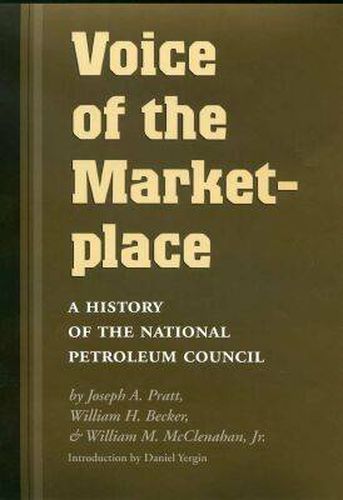Readings Newsletter
Become a Readings Member to make your shopping experience even easier.
Sign in or sign up for free!
You’re not far away from qualifying for FREE standard shipping within Australia
You’ve qualified for FREE standard shipping within Australia
The cart is loading…






The National Petroleum Council (NPC) emerged out of the close cooperation between the petroleum industry and the federal government during World War II. In the last fifty-plus years, the Council has evolved into a voice of the marketplace, analyzing conditions in the petroleum industry and publishing its findings in reports widely considered authoritative and useful. Here, Joseph A. Pratt, William H. Becker, and William M. McClenahan, Jr., analyze the choices and strategies that have given the Council the adaptability and resilience to survive. The authors look at the Council’s reports and examine the NPC’s ability to tap information and personnel from all sectors of the industry. Finally, they analyze the one political concern that has remained constant for the industry: antitrust. This book not only sheds light on the petroleum industry and its regulatory context but also addresses the larger questions of the U.S. government’s relations with the industries it regulates.
$9.00 standard shipping within Australia
FREE standard shipping within Australia for orders over $100.00
Express & International shipping calculated at checkout
The National Petroleum Council (NPC) emerged out of the close cooperation between the petroleum industry and the federal government during World War II. In the last fifty-plus years, the Council has evolved into a voice of the marketplace, analyzing conditions in the petroleum industry and publishing its findings in reports widely considered authoritative and useful. Here, Joseph A. Pratt, William H. Becker, and William M. McClenahan, Jr., analyze the choices and strategies that have given the Council the adaptability and resilience to survive. The authors look at the Council’s reports and examine the NPC’s ability to tap information and personnel from all sectors of the industry. Finally, they analyze the one political concern that has remained constant for the industry: antitrust. This book not only sheds light on the petroleum industry and its regulatory context but also addresses the larger questions of the U.S. government’s relations with the industries it regulates.